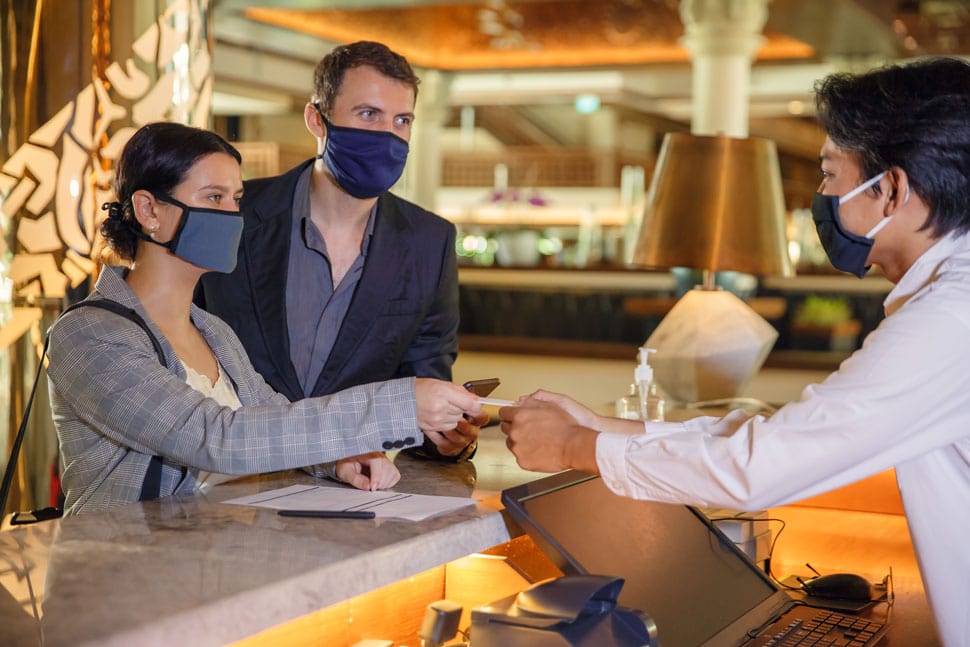
The new year is often a time to begin summer travel plans, and for the most organized of us all, even holiday family plans. Like 2020, travel during 2021 will be extremely different than what we are used to, but with vaccinations for the Covid-19 pandemic underway around the world and easier access to pre- and post-travel testing, there is light appearing at the end of the (potentially long) tunnel. This means it’s time to start thinking of your next trip and when that might be.
Whether you are planning some tentative vacations for the second half of 2021 or looking to start checking off those bucket-list plans for 2022, here’s a checklist to help you understand how best to manage the process.
One thing is for sure: things are fluid and constantly changing. Be open and flexible to potential changes, but also have a travel plan already in place so that you are well-prepared for when an uptick in travel begins.
Since travel can restart quickly, it helps to be ready. For example, when travel restrictions are relisted for certain parts of the world, many may feel an added level of security, which may lead to a rush in people planning travel. Some remote, outdoor-centric destinations like safaris in Africa are already seeing significant demand given the natural social distancing already built into the experience. Now is the time to start thinking about where you want to go so you are ready to take advantage of the best travel perks and deals.
- Make flexible travel policies your friend. There’s no doubt you’ve been daydreaming about travel for a year. The good news is that airlines and hotels have become more flexible in their reservation policies than they were pre-pandemic. This means you have less worry about losing cash when booking a reservation that you have to change later. Yes, you may receive your money back in the form of a credit, but if you are planning to change the dates anyway, that shouldn’t be a problem. Typically, the only penalty would be any difference in price for your new dates (in some cases it may be cheaper, and you’ll get that money back as a refund or a credit, too). Make plans now to lock in good deals, and take comfort in knowing you can easily change them for later.
- Take advantage of bargain deals. While the industry is getting back on its feet, it is doing so by lowering prices to encourage travel. This means there are great bargains to be had especially on future cruise bookings or vacation packages. Consider a bucket-list trip that may have otherwise been too expensive. Prices may have dropped. With flexible travel policies, you can make tentative plans now to lock in good deals and then change them later if necessary. So why not scour the good deals now in hopes you can take advantage of them in the future?
- Be open to working from anywhere and making a trip out of it. While not all jobs have the ability to set up shop in a new setting within an instant, those that can will need to continue doing so for awhile. Work-from-hotel packages have been popping up everywhere over the past few months with creative options making it easier to stay productive when vacationing or even when isolating in a hotel room. It’s not just business people that can set up shop in a hotel room; kids can, too. Work-from-school packages are also on the rise, and remote learning will continue to be a trend for the time being. And if you’re planning to visit a hotel, why not learn a new skill while you’re there? Many properties have pivoted to offer both remote working opportunities as well as educational experiences for their guests.
- Lean on the services of a good travel advisor. With the situation constantly changing, a travel agent can monitor your reservation and assist if there are adjustments that need to be made along the way (even while you’re there). For example, many countries are closing and reopening borders with little notice, and a good travel advisor can provide assistance if you need help on the fly. Most travel advisors don’t charge extra for their services as they make money through commissions from travel providers. This means it is wise to lean on their expertise during challenging times as well as their network of contacts should you need to make changes to your plans.
- Review cleanliness protocols and regulations. Almost every notable brand from airlines to hotels has invested quite a bit in crafting protocols that outline the utmost in safety and security when it comes to Covid-19 prevention. Destinations, too, have detailed Covid-19 plans in place, and almost everywhere will require masks and social distancing so come prepared. While there is no perfect solution, it is wise to understand what brands are doing amid ever-changing rules as they all vary slightly.
Companies such as Hilton and Meliá Hotels International use sticker seals on the guest room door to denote that the room has been sanitized and not touched by anyone else before the guest arrives. Others like Gaylord Hotels and Omni Hotels leave bottles of sanitizer and masks in the guest room. Airlines are changing their onboard service with some airlines doing the very least to keep guests hydrated or satiated in flights while others like Qatar Airways have modified their high standards without cutting back on the customer experience.
Many destinations may require quarantining for a set period of time upon arrival; your return destination may also require this. In addition, negative Covid-19 tests may be required at your destination, but there are so many things to keep in mind. Some destinations require it to board your flight, others require it to be valid a certain number of hours before your arrival. The timing for each destination varies (between 24 hours and 96 hours is the most common distinction). Knowing when you need to have it and where is paramount as you might be turned away before you even get there. Restrictions may require the same for your return, even as a citizen in your own country.
Know who you’re doing business with and what to expect where you’re going to avoid disappointment and travel prepared. These tips can help you stay ahead of the curve, and when you’re ready to get back out there, you can do so in style and without overpaying.




























